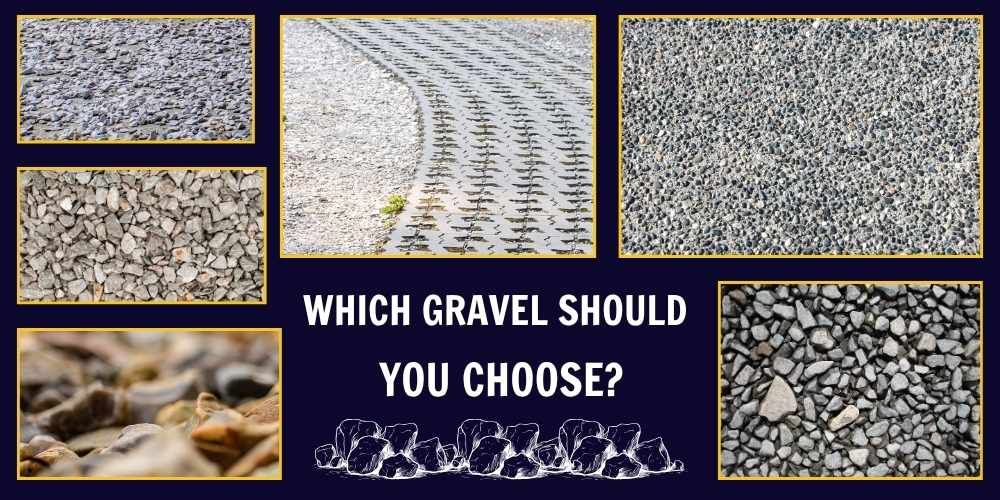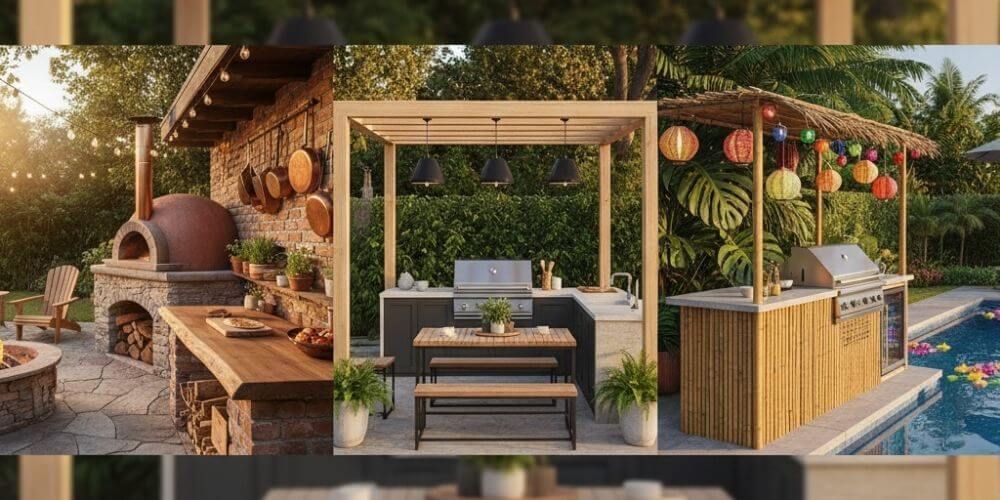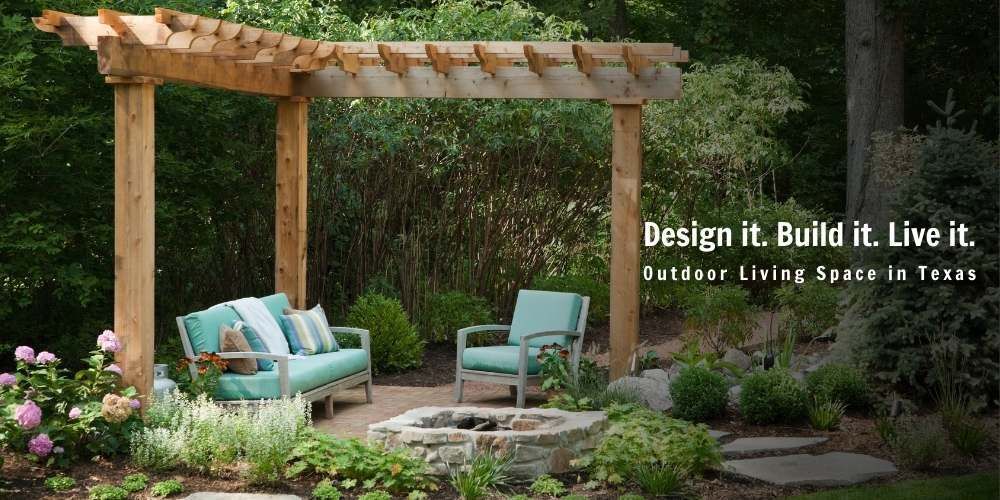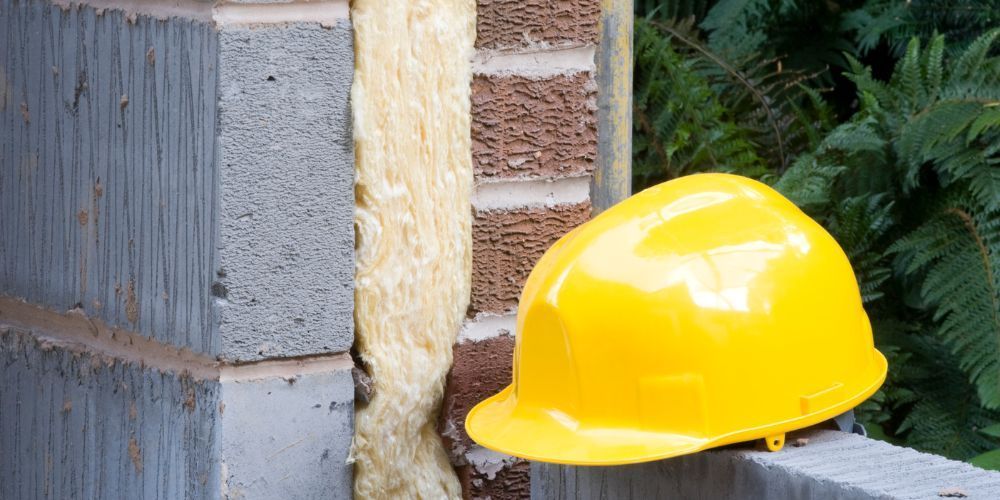Patios vs Decks: Which Is Right for You?
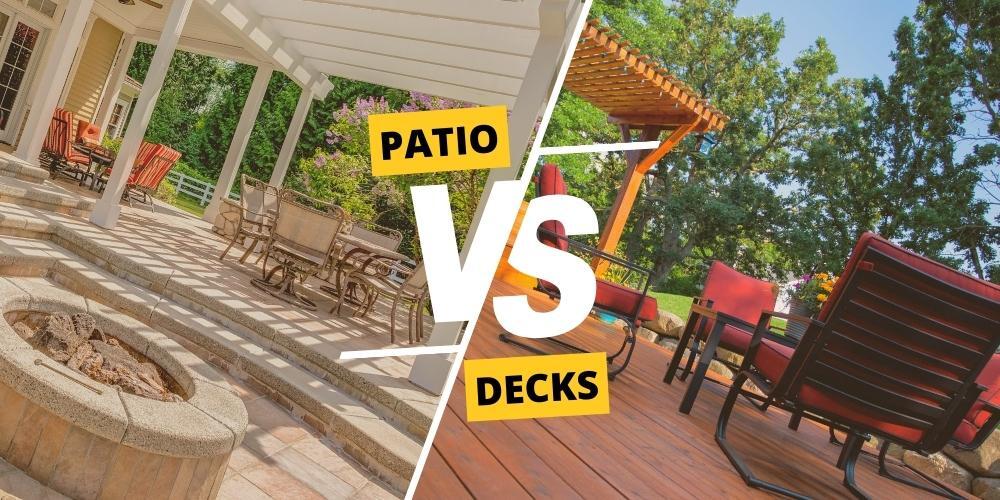
As you look around your backyard, you might think of changes that you would like to make to the landscaping or to the seating area. This is where you encounter the dilemma of whether to add or spruce up a patio or build a deck. Before deciding, read on to learn more about patios and decks and which option works best for your outdoor space.
What are Patios??
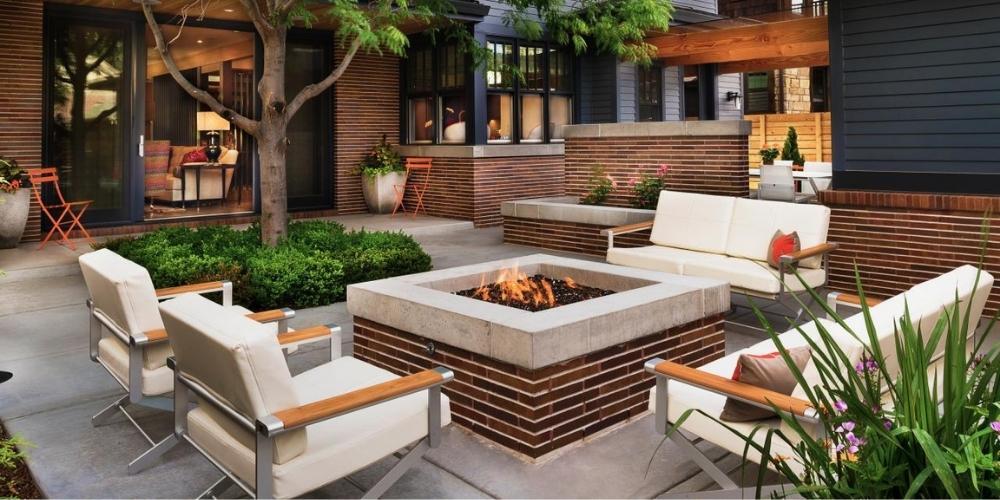
A patio is a flat slab built flush to the ground that can be attached or detached from the house. While you’ll find that concrete patios are the most common choice, you’ll also see some of these spaces constructed from pavers or flat stone. Like any other amenity, they have their pros and cons.
Pros of Patios
Patios don’t require permits
Since they are built directly on the ground, without altering the house’s structure, you shouldn’t need a permit or an inspection to build a patio. Nonetheless, you might still check on local ordinances or HOA requirements.
Patios are less expensive to build
Concrete is frequently used as the construction material when cost-cutting is a concern. Additionally, even when customizing your design by staining or stamping, concrete patios are easier to build, saving you even more labor costs.
Patios have a long lifespan with less maintenance
For a concrete patio, you can expect a lifespan of 30 years or more. Additionally, this choice tends to involve less maintenance, aside from periodic sweeping or power washing and sealing every two to five years.
Patios offer more privacy
Because patios sit directly on the ground, you won’t have to be concerned about privacy, especially if you have a 6-foot-tall fence. Additional flexibility with design, like a covered, screened-in porch, or with landscaping, like trees or hedges, can allow for even more privacy.
Cons of Patios
Vulnerable to cracks
One downside to concrete patios is their vulnerability to cracks, particularly if you throw rock salt down in the winter to prevent slipping. This causes a lot of wear and tear to your slab. Also, if the ground underneath wasn't thoroughly prepared, then the patio will not settle and result in cracks.
Won’t work on uneven ground
Patios may not be a viable option if your backyard is not level. Your contractor might create a design that divides your backyard into multiple terraces, with each part evened out and tamped down completely. However, this drives the price up even higher.
Retain heat during the summer
An additional drawback to concrete patios is their ability to retain heat. The surface heats up quickly during the warm weather months, and you must be careful not to touch it with your bare feet.
Less resale value
Patios have less ROI than decks. You might save money upfront when you add a patio, but unfortunately, you’ll lose resale value on the back end.
Risk for slipping
Concrete and larger stones are smooth, they pose a slipping hazard during wet or icy weather.
What are Decks?
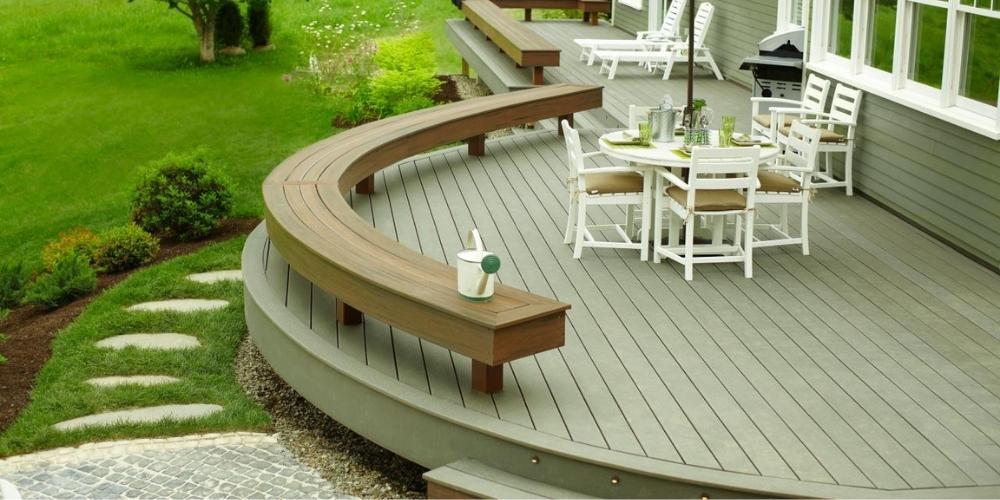
Decks are open platforms or porches that are built as an attached outdoor extension of a house. Most are constructed from wood, although composite is becoming more popular. For the homeowner who wants a more elevated space, the deck offers a great option. Plus, a deck, like a patio, can include shade.
Pros of Decks
Decks work well on uneven terrain
Unlike concrete patios, contractors can design decks with multiple levels to where they work well on uneven terrain. Likewise, contractors can implement taller posts and steps.
Decks increase the resale value
On average, you can gain 76% of your investment for a wooden deck. In fact, in warm weather regions, decks offer an attractive selling point for buyers who want an outdoor space that’s also an extension of the home.
Decks are customizable
Likewise, you can design a deck in just any manner that you please as long as it’s structurally sound. This includes the types of wood and stains. As mentioned, you can add a cover or leave it open.
Decks are more comfortable in warm weather
Since wood doesn’t absorb heat, you’ll find that a deck is more comfortable during the summer. However, this also depends on the color of the stain, as darker colors attract more heat and the material. For instance, composite wood heats up more than real wood.
Decks provide a splendid view
Because these structures are elevated, you can get a beautiful view and even the surrounding scenery depending on the terrain where your home sits.
Cons of Decks
Might require a permit
You’ll most likely require a permit before starting construction. Plus, the building site will need to undergo inspections during and after construction to ensure that they’re complying with local codes. Otherwise, you’ll have to pay fines or remove the deck completely.
Shorter lifespan with more maintenance
Unfortunately, wood has a shorter lifespan than concrete or stone. Plus, you’re looking at more complex maintenance. Periodically, you’ll have to rinse it off with a power washer to keep it free of debris. Moreover, you’ll need to repaint or re-stain and reseal it every two years to extend its life. On the other hand, you can opt for composite material which doesn’t require as much maintenance as real wood.
More expensive to build
The deck is also a very costly option. Wood, especially sturdier varieties carries a heavy price tag. And there are other parts and materials that you’ll need. Additionally, you’ll have higher labor costs to consider as well as fees for permits and inspections.
Weight limitations
Another important consideration is weight restrictions. If you were planning on having a hot tub, then a patio would be the better option because a deck can’t support that much weight. You’ll also have to keep this factor in mind when selecting outdoor furniture or if you were thinking about an outdoor cooking area.
Might not work for a single-level home
Furthermore, a deck may not be the best addition to a home that only has one level and is situated on flat land. Rather than adding to the overall aesthetic, a deck might take away from it. Even if your doorway is slightly elevated, you might consider adding steps and a patio instead.
Which one should you choose?
So, when deciding on a patio vs a deck, you’ll have carefully consider some factors such as:
● The weight of the furnishings and other items that will go in your outdoor space
● The size and terrain of your yard. If your yard is not level, or your house is built on an elevated plot, a deck might be the best choice. Otherwise, for a single-level home on a flat space, you might consider a patio.
● The amount of time you have every week for maintenance, as concrete requires less attention than wood. Plus, you might look at the overall cost of maintenance.
Other aspects to keep in mind are the upfront cost and longevity of the structure which places concrete patios as the top choice. To get some valuable insight into this choice, contact our experts who can present various design options that will suit your family’s needs for an outdoor area without breaking your budget.



